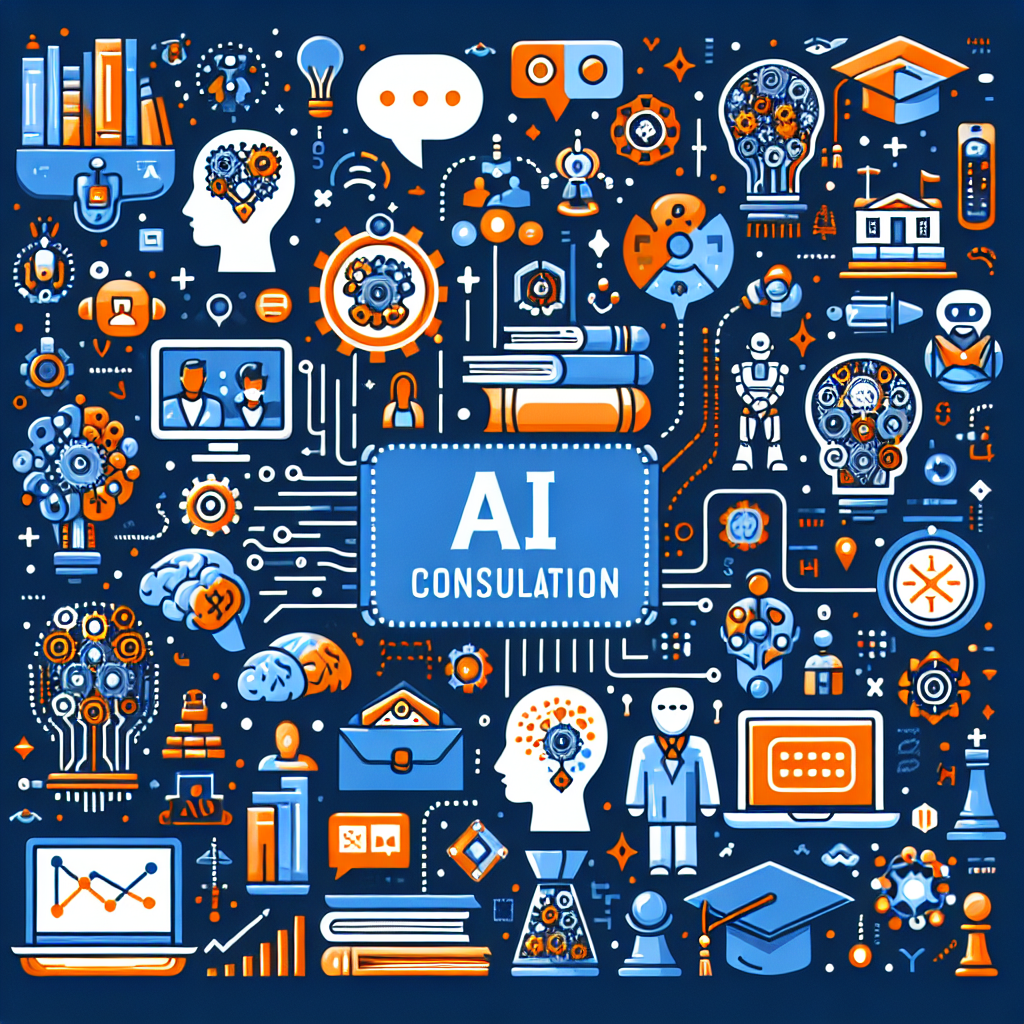Artificial Intelligence (AI) has been making waves in various industries, and education is no exception. AI consulting in education is a rapidly growing field that holds immense potential to enhance the learning experience for students, streamline administrative processes for educators, and improve overall efficiency in educational institutions. In this article, we will explore the potential of AI consulting in education and how it can revolutionize the way we teach and learn.
AI in Education: A Game-Changer
AI technology has the capability to revolutionize the education sector by providing personalized learning experiences for students, automating administrative tasks for educators, and improving overall efficiency in educational institutions. Some of the key ways in which AI can be applied in education include:
1. Personalized Learning: AI algorithms can analyze students’ learning patterns, strengths, and weaknesses to create personalized learning paths for each student. This allows educators to tailor their teaching methods to meet the individual needs of each student, leading to better academic outcomes.
2. Automated Grading: AI-powered grading systems can automatically grade assignments, exams, and quizzes, saving educators valuable time and allowing them to focus on more important tasks such as lesson planning and student support.
3. Virtual Assistants: AI-powered virtual assistants can provide students with instant answers to their questions, help them with homework, and even offer personalized study tips based on their learning patterns.
4. Predictive Analytics: AI algorithms can analyze data to predict student performance and identify at-risk students who may need additional support. This allows educators to intervene early and provide the necessary resources to help students succeed.
5. Administrative Efficiency: AI can streamline administrative processes such as scheduling, resource allocation, and student enrollment, saving time and resources for educational institutions.
AI Consulting in Education: Opportunities and Challenges
While the potential benefits of AI consulting in education are vast, there are also several challenges that need to be addressed. Some of the key opportunities and challenges of AI consulting in education include:
1. Opportunities:
– Improved Learning Outcomes: AI technology has the potential to significantly improve learning outcomes by providing personalized learning experiences for students.
– Increased Efficiency: AI can automate administrative tasks, saving time and resources for educators and educational institutions.
– Enhanced Student Engagement: AI-powered tools such as virtual assistants can increase student engagement by providing instant feedback and support.
2. Challenges:
– Data Privacy: The use of AI in education raises concerns about data privacy and security. It is important for educators and institutions to ensure that student data is protected and used responsibly.
– Equity and Access: There is a risk that AI technology could widen the achievement gap between students from different socioeconomic backgrounds. It is important to ensure that AI-powered tools are accessible to all students, regardless of their background.
– Training and Support: Educators may require training and support to effectively integrate AI technology into their teaching practices. It is essential to provide educators with the necessary resources and professional development opportunities to ensure successful implementation.
FAQs
Q: How can AI technology be used to improve student engagement?
A: AI-powered tools such as virtual assistants can provide instant feedback, personalized study tips, and interactive learning experiences to increase student engagement in the classroom.
Q: What are some potential benefits of using AI in education?
A: Some potential benefits of using AI in education include improved learning outcomes, increased efficiency in administrative tasks, enhanced student engagement, and predictive analytics to identify at-risk students.
Q: How can educators ensure that student data is protected when using AI technology?
A: Educators and institutions should implement data privacy policies and security measures to protect student data when using AI technology. It is important to comply with data protection regulations and ensure that data is used responsibly.
Q: What are some challenges of implementing AI technology in education?
A: Some challenges of implementing AI technology in education include data privacy concerns, equity and access issues, and the need for training and support for educators.
In conclusion, AI consulting in education has the potential to revolutionize the way we teach and learn by providing personalized learning experiences, automating administrative tasks, and improving overall efficiency in educational institutions. While there are challenges that need to be addressed, the opportunities for using AI in education are vast and have the potential to transform the education sector for the better. By embracing AI technology and providing educators with the necessary support and resources, we can unlock the full potential of AI consulting in education and create a more effective and engaging learning environment for students.

